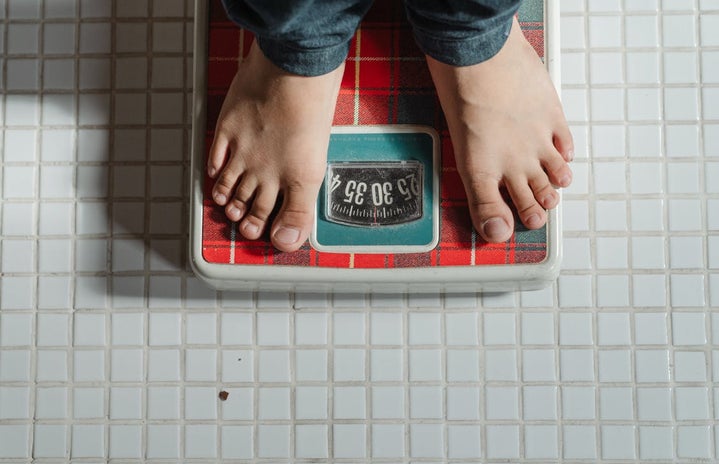Using middle school bullying tactics shows ignorance and doesn’t actually promote healthy eating.
As mask and vaccine mandates have cotinued to rise, you may have seen tweets saying things like “we all talk about masks because of their health problems, but why don’t we ban Whoppers for their impact on obesity?”
This is, clearly, a false equivalency, but anti-vaccine and anti-mask supporters seem to regularly use this blatantly fatphobic tactic to solidify their arguments. Fatphobia began long before the pandemic, but the pandemic has certainly helped bring out people’s true colors.
Fatphobia kills. It’s a dangerous mix of pride and ignorance, which leads others to attack people based on their weight.
Icons like Lizzo can’t even do a music video without getting viciously attacked. The fatphobia and racism got so bad that she got on Instagram live to address the criticism and call it what it is “it’s fatphobic, it’s hurtful, and it’s racist.” XYZ. The truth is, bullying tactics like these don’t promote health.
Many people believe weight loss can be achieved from simply exercising and maintaing a healthy diet. They fail to account for any nuances refuse to acknowledge the complex reasons people, particularly women, gain weight
Until the 1990s, women were rarely studied in medicine because they claimed female hormones complicated the data. XYZ. In 1977, the Food and Drug Administration (FDA) explicitly recommended women be left out of medical studies in response to the thalidomide scandals. Cisgender, white male bias in American medical studies led to many harmful misconceptions and a dangerous lack of information about women’s bodies.
The research forms the foundation of public knowledge and how we apply it. Excluding women based on their hormones sets a dangerous precedent of assuming men and women are biologically the same in all of their needs. It forces women to apply knowledge (based on male hormones) to their bodies (which usually contain fewer male hormones). The general public then shifts blame to the women rather than the system that creates this public knowledge.
This lack of medical research is glaringly obvious when it comes to the role of hormones in women’s health. Polycystic Ovary Syndrome, otherwise known as PCOS, impacts an estimated six to twelve percent of Americans with female reproductive systems. Common symptoms include irregular hormone levels, difficulty losing weight, insulin resistance, and infertility. For women with this syndrome, weight loss isn’t a simple task-it often requires medication and a special diet.
Hypothyroidism, which is 2 to 8 times more common in women than men, can also impact a person’s weight. This condition, which causes a person’s thyroid to produce insufficient amounts of hormones, can lead to fatigue, digestive issues, and weight gain. Similar to PCOS, medication is often needed to correct this issue, and diet and exercise are not sufficient.
Fatphobia, which can range from snide remarks to being more likely to be targeted by police, is a form of bigotry. A person’s weight is influenced by a wide variety of factors, many of which may be out of their control. No one deserves to be written off as lazy or ugly or, even worse, be a target for violence or discrimination on the basis of their weight.
The key to promoting health isn’t indulging in fatphobic ideas; it’s practicing compassion. Understanding the impacts of medical disorders, poverty, and medical sexism and racism on weight is crucial to promoting health. Rejecting fatphobia means accepting others regardless of how they look and understanding that since you’re not their doctor or dietician you have no right to evaluate their lifestyle.

